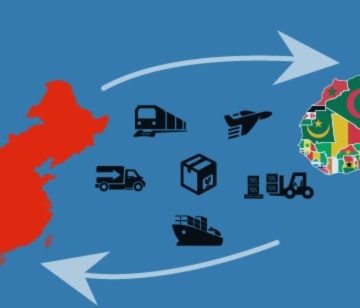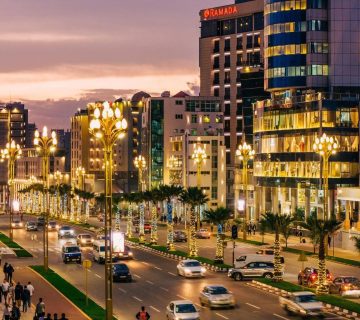The East African Community (EAC) has finally granted Democratic Republic of Congo’s (DRC’s) June 2019 request for admission, at today’s Extraordinary Heads of State Summit. Reception to DRC’s entry into EAC has divided opinion in recent times. For regional integration supporters in general, and DRC in particular, it is a long overdue but welcome move that holds the promise of opening up the bloc to more integrated development. For integration opponents, the admission of yet another ‘problem child’ into the Community (in addition to South Sudan that joined EAC in April 2016) is premature. A third group is neutral, watching how things are shaping up. ‘Problem child’ or not, DRC’s impressive and unmatched resource portfolio (including mineral wealth [cobalt, gold, diamond, aluminum, and copper, among others]; 105,044,646 people (according to the 2022 World Fact Book); numerous water bodies; vast farm land; rich biodiversity; and the world’s second largest rain forest) is still untapped. To leverage the additional resources that DRC brings to the EAC table for the accelerated socio-economic development that the bloc absolutely needs to sustain its peace and security, EAC member states are best advised to embrace DRC wholeheartedly.
Shared Opportunities, Shared Burdens
Like Tanzania, DRC is a Southern Africa Development Community (SADC) member state. As membership to EAC and SADC are not mutually exclusive, DRC’s entry into EAC will strengthen the EAC-SADC bridge that Tanzania already established when she joined SADC. It will also bolster ongoing bilateral negotiations for a Grand Free Trade Area between EAC and the 16-member SADC, and among EAC, SADC, and the Common Market for Eastern and Southern Africa (COMESA). Furthermore, the addition of DRC’s 105,044,646 people to EAC will swell EAC’s current population to 303,370,369 individuals, and expand the EAC-SADC one to about 613,588,439 people. DRC, sub-Sahara’s largest country, will become EAC’s largest country. She will also bring her French heritage with her, and, together with Rwanda, and Burundi, give EAC a new identity; EAC will become Africa’s largest Francophone bloc. The trade potential of this is significant.
That said, becoming EAC’s newest member will not suddenly melt away the socio-economic and geopolitical problems that plague DRC. On the contrary, DRC will still be a rich-poor country on its admission into the bloc on March 29, 2022. Being one of the mineral-resource richest countries in the world, and having the “second largest primary humid tropical forest endowment and carbon sink globally”- according to the World Bank – has not insulated DRC from becoming the home of “the third largest population of poor globally.” DRC’s inability to improve its development outcomes sufficiently despite rising commodity prices and her expanded production capacity could point to poor economic management, geopolitical interference, and protracted political crises. To be clear, DRC’s entry into the EAC will not introduce anything that its six current members (Burundi, Kenya, Rwanda, South Sudan, Tanzania, and Uganda) are not already accustomed to. With or without DRC, armed militant groups, terrorism, illegal migration, political turbulence, underdeveloped economies, youth unemployment, poverty, and poor infrastructure are realities that EAC has contended with for much of the time since July 2000 when the Community came into being. However, it will recalibrate the bloc’s peace and security considerations.
Some opponents of integration have expressed fear that DRC will import armed militants into EAC; these are not misplaced. The pursuit and/or protection of the often-competing interests of local populations; the government; regional, continental, and extra-continental actors; multinational corporations; development partners; and peace keeping troops have created a security dilemma. This has allowed for the growth of armed militant groups in the North Kivu province – which is one of the country’s resource bedrocks. More than 100 militia groups are known to be active in eastern DRC. The change in the Allied Democratic Force’s (ADF’s) identity from a militia group into a militia-terror group has also complicated DRC’s security challenges. Unsurprisingly, DRC’s set of complex security challenges is one of misgivings about DRC’s entry into EAC that some of those opposed to DRC’s entry into EAC have.
Then there is the issue of infrastructural underdevelopment. Compared to other less-endowed countries in EAC or SADC such as Kenya, or South Africa, there is room for DRC to develop her mining (high value minerals), agricultural, transport (roads, railways), energy (solar), financial (banking), and telecommunication sectors further.
Enhancing “Integrated Development”
DRC will now have six additional accountability partners with whom she can navigate the integrated development terrain better. This navigation could begin with DRC confronting and resolving its persisting problems with a greater sense of urgency. To shed its ‘problem child’ tag, for example, DRC could seek the support of member states that are dealing with challenges similar to DRC’s such as insecurity. To prevent and/or counter terrorism better, DRC could draw from experiences of Kenya, Tanzania, and Mozambique, for example to improve DRC government’s capacity to counter terrorist and insurgent groups. DRC could also partner with other EAC member states besides Uganda to strengthen joint operations against ADF and other militant groups in DRC. Further, DRC could also engage in an aggressive campaign to improve the living standards of ordinary Congolese citizens. This could be through demands for multinationals’ to engage in more corporate social responsibility in their areas of operation, focusing on poverty reduction, education, and environmental conservation. Commitment to timely remitting of its annual quota to the EAC will be another plus. At the same time, member states should expedite bilateral and multilateral trade and security agreements to reduce the increased risks such as trafficking of persons, money laundering, and fraud that tend to accompany the increased movement of people and goods within integrated territories in the region. Agreements should be arrived at consultatively for sustainable integrated development. Then DRC’s EAC admission will be worth the effort.
Roselyne Omondi is Associate Director, Research, at the HORN Institute.
The contents of this article are copyright of © The HORN Institute 2022. All rights reserved. Any redistribution or reproduction of part or all of the contents in any form and for whatever reason is prohibited. You may use the content of this article for personal reasons, but acknowledge the website as the source of the material.



